SAKAN Partners: Civil Society
This page provides a brief summary of the potential for SAKAN Partnerships with Civil Society organizations and groups across all geographic boundaries and disciplines. The globally endorsed Sustainable Development Goals (SDG) under management by the whole United Nations family positions ICT in Sustainable Development Goal 17 (SDG 17) -they foster the successful achievement of all other goals. ICTs in various now obsolete names, guises, technologies, and acronyms lie at the core of human evolution – the ability to share information and knowledge across cultural, distance, and even language barriers has been the driving force of human evolution, starting about 300,000 years ago. SDG 17 cuts across all disciplines of human endeavour; all SDGs require information and knowledge sharing within and between all disciplines, they are interdependent, and ICTs provide the links between each discipline. Civil Society organizations, especially those active in ICTs, are thus important interfaces between all human development activities, the purpose behind the SAKAN vision. Civil Societies range from the smallest under-funded village committee to very large activist groups such as the Grameen Bank, and thus serve as both input resources and outcome recipients of the SAKAN vision.
Please click on each icon to access the websites of these organizations, followed by the upper left-pointing "Return" arrow of your web page to return to this page.
Please click the "PARTNERS" navigation bar to return to the list of partners, or the "HOME" navigation bar to return to the home page.
This SAKAN initiative is about both: Civil Society as a whole, which encompasses (a) the minority of wealthy South African citizens, their businesses, schools and universities, and political parties; (b) the +50% economically marginalized citizens and their children that can barely afford the means of survival; (c) the CSOs that these Civil Societies have formed to try to address the very human challenges faced by the South African nation as a whole; and (d) Government in its activities and participation Multi-Stakeholder Partnerships. All have a role in seeking ways of ameliorating the destructive threats of inequality, poverty and unemployment. All Civil Society will ultimately suffer the consequences of these triple threats, so clearly demonstrated by all recorded human history. This section of the SAKAN initiative focuses on the CSO community, those that provide services to the process of ameliorating the triple threats, and those that use those services thus adding to their viability and sustainability. Civil Society, in its broadest sense, is therefore the main focus of this SAKAN initiative.
The discussions, and lists of CSOs that follow, are not exhaustive. Building a database of CSOs that are willing to partner with SAKAN, and those that are not willing or able to enter formal partnerships but are able to support the initiative in other ways, form part of the SAKAN work in progress.
 South Africa was a signatory at the launch of the second phase of the World Summit on the Information Society (WSIS) in Tunis in 2005. Since then, South Africa has been an active partner in the WSIS process, and continues to further the WSIS agenda through regular meetings at DTPS, and the creation of the National Internet Governance Forum (IGF) in late 2016. The SAKAN objectives align fully with the WISIS and IGF agendas, and will form part of South Africa’s WSIS agenda, including active participation in the preparations for the 2018 and 2025 global forums.
South Africa was a signatory at the launch of the second phase of the World Summit on the Information Society (WSIS) in Tunis in 2005. Since then, South Africa has been an active partner in the WSIS process, and continues to further the WSIS agenda through regular meetings at DTPS, and the creation of the National Internet Governance Forum (IGF) in late 2016. The SAKAN objectives align fully with the WISIS and IGF agendas, and will form part of South Africa’s WSIS agenda, including active participation in the preparations for the 2018 and 2025 global forums.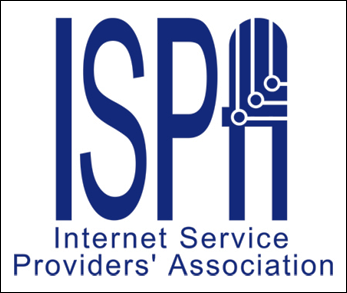 South Africa’s not-for-profit Internet Service Provider's Association (ISPA), representing all internet service providers in South Africa, has a current membership of 179, dominated by small, medium and micro enterprises providing vital internet services to the nation. This community of entrepreneurs has invaluable lessons for South Africa’s ICT growth and employment creation through ICT: how can the ISPA model be expanded to connect the 90.5% of South African households without a fixed internet connection? The ISPA business model can be easily expanded to enable new SMME entrants in the national ICT sector.
South Africa’s not-for-profit Internet Service Provider's Association (ISPA), representing all internet service providers in South Africa, has a current membership of 179, dominated by small, medium and micro enterprises providing vital internet services to the nation. This community of entrepreneurs has invaluable lessons for South Africa’s ICT growth and employment creation through ICT: how can the ISPA model be expanded to connect the 90.5% of South African households without a fixed internet connection? The ISPA business model can be easily expanded to enable new SMME entrants in the national ICT sector.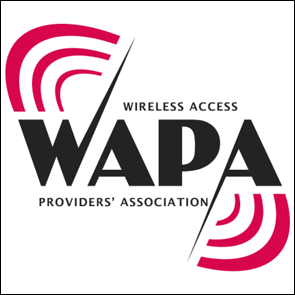 Like ISPA, WAPA is a not-for-profit membership organization providing internet services to South Africans using wireless technologies. WAPA’s membership of nearly 400 comprises a majority of SMME entrepreneurs highly skilled in wireless technologies. Many WAPA members have used their social sensitivities to provide free Wi-Fi access to rural schools and other institutions that are within reach of their networks. With improved policy and regulatory support, specifically judicious spectrum assignments, the WAPA business model can be expanded at low cost to bridge South Africa’s vast digital divides.
Like ISPA, WAPA is a not-for-profit membership organization providing internet services to South Africans using wireless technologies. WAPA’s membership of nearly 400 comprises a majority of SMME entrepreneurs highly skilled in wireless technologies. Many WAPA members have used their social sensitivities to provide free Wi-Fi access to rural schools and other institutions that are within reach of their networks. With improved policy and regulatory support, specifically judicious spectrum assignments, the WAPA business model can be expanded at low cost to bridge South Africa’s vast digital divides. APC, with a strong South African presence and global reach, introduces itself as follows “Between 1982 and 1987 several independent, national, non-profit computer networks emerged as viable information and communication resources for activists and NGOs. The networks were founded by people with experience in communication and international collaboration in the NGO world, and a deep commitment to making new communication techniques available to movements working for social change.” The question that SAKAN will seek an answer to is how this citizen movement can be repositioned to help South Africa to overcome its triple threats?
APC, with a strong South African presence and global reach, introduces itself as follows “Between 1982 and 1987 several independent, national, non-profit computer networks emerged as viable information and communication resources for activists and NGOs. The networks were founded by people with experience in communication and international collaboration in the NGO world, and a deep commitment to making new communication techniques available to movements working for social change.” The question that SAKAN will seek an answer to is how this citizen movement can be repositioned to help South Africa to overcome its triple threats?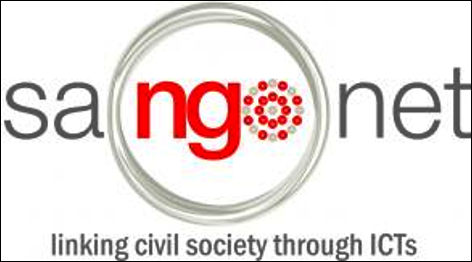 A product of APC, the Southern African NGO Network (SANGONeT) was founded in 1987, and has developed into a dynamic civil society organisation (CSO) over the last 30 years. The CSO has a history closely linked to the social and political changes experienced by South Africa during its transition to democracy, and remains one of very few non-governmental organisations (NGOs) in Africa involved in the field of information communication technologies (ICTs). SANGONeT’s activities in South Africa and the SADC region have been curtailed by the national and global economic downturn.
A product of APC, the Southern African NGO Network (SANGONeT) was founded in 1987, and has developed into a dynamic civil society organisation (CSO) over the last 30 years. The CSO has a history closely linked to the social and political changes experienced by South Africa during its transition to democracy, and remains one of very few non-governmental organisations (NGOs) in Africa involved in the field of information communication technologies (ICTs). SANGONeT’s activities in South Africa and the SADC region have been curtailed by the national and global economic downturn.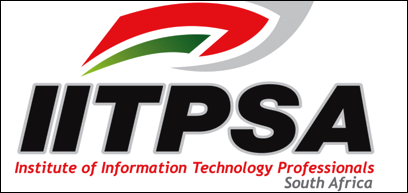 With nearly 60 years of history, the Institute of Information Technology Professionals of South Africa (IITPSA) is probably one of the oldest non-profit ICT industry associations in South Africa. With a wealth of vital academic and practitioner knowledge of the whole national ICT industry, the CSO’s members have contributed greatly to South Africa’s technology development over the years. Vital research activities and the critical registration of technological qualifications and skills, the IITPSA is a vital cog of the national ICT industry. How can it be utilized more to directly address South Africa’s triple threats more than it already does?
With nearly 60 years of history, the Institute of Information Technology Professionals of South Africa (IITPSA) is probably one of the oldest non-profit ICT industry associations in South Africa. With a wealth of vital academic and practitioner knowledge of the whole national ICT industry, the CSO’s members have contributed greatly to South Africa’s technology development over the years. Vital research activities and the critical registration of technological qualifications and skills, the IITPSA is a vital cog of the national ICT industry. How can it be utilized more to directly address South Africa’s triple threats more than it already does?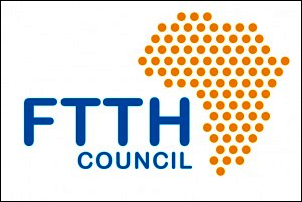 The Fibre to the “X” Council, recently expanded from the more limited Fibre to the Home Council, is arguably one of the leading non-profit ICT change agents in modern South Africa. Its launch in 2010 has led to furious competition in fixed line broadband infrastructure growth, after decades of mediocrity. The change in name from FTTH to FTTX augers well for the sector – rapid expansion of fixed broadband infrastructure in support of all other technologies, including those in the 4IR. Some FTTX members are already addressing the needs of South Africa’s excluded poor population, a process that will be strongly supported by SAKAN.
The Fibre to the “X” Council, recently expanded from the more limited Fibre to the Home Council, is arguably one of the leading non-profit ICT change agents in modern South Africa. Its launch in 2010 has led to furious competition in fixed line broadband infrastructure growth, after decades of mediocrity. The change in name from FTTH to FTTX augers well for the sector – rapid expansion of fixed broadband infrastructure in support of all other technologies, including those in the 4IR. Some FTTX members are already addressing the needs of South Africa’s excluded poor population, a process that will be strongly supported by SAKAN. The South African Communications Forum (SACF) is the non-profit industry association supporting the major mobile and fixed ICT infrastructure operators, and related members of the national ICT sector. SACF members have the capacities, and resources, to resolve the national challenges, however, the current business models do not support pro-poor CT service provision. Can this stalemate be reversed in the interests of both the nation and the industry, who all depend on a stable business environment? SAKAN, in full collaboration with SACF members and Government, is designed to search for solutions acceptable to all parties.
The South African Communications Forum (SACF) is the non-profit industry association supporting the major mobile and fixed ICT infrastructure operators, and related members of the national ICT sector. SACF members have the capacities, and resources, to resolve the national challenges, however, the current business models do not support pro-poor CT service provision. Can this stalemate be reversed in the interests of both the nation and the industry, who all depend on a stable business environment? SAKAN, in full collaboration with SACF members and Government, is designed to search for solutions acceptable to all parties.



